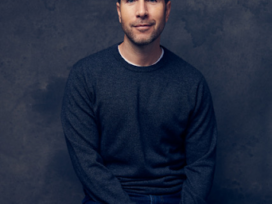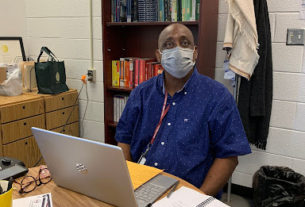Social media strong activism tool in Afghanistan
The power of social media and the way it is used in the United States and Afghanistan are markedly different. People in the U.S. use Facebook almost every hour. Jon Languasco, president of PVCC’s International Club, said, “Social [networking] is a great tool for organizing and involving people in club activities because people check their Facebook more often than their emails.” Facebook, Twitter and other social media have become powerful communication tools. As Languasco said, if someone asks a new contact for his or her information, they will often say “find me on Facebook.”
Languasco added that Facebook is not a viable news source in American society. “I have more than a few Facebook friends from other countries like Spain, Italy, and Brazil, but no one, as far as I know, uses it to post current events or serious news; they just use it to socialize.”
Although social media leans toward a more personal communication function rather than acting as a news source in the United States, it shows a different trend in Afghanistan. Inside Afghanistan, people often get more chances to obtain current news from sources such as Facebook and other social media than from established news outlets. For instance, on Sept. 22, a group of students protested against the lashing of a fifteen-year-old girl by a group of religious figures in the Ghazni province. This punishment was due to a relationship she had with a boy. The boy was released, while the girl, Sabira, was flogged more than 100 times. Ghulam Hussain Sirat, who is currently a journalist with Deutsche Welle radio in Kabul, followed this case deeply with the help of Facebook to spread the news.
It was not possible to talk to Sirat directly, but through an email he said, “Although we witnessed achievements through the past eleven years, the religious figures are still active and act illegally. For instance, the lashing of fifteen-year-old Sabira in the Jaghori district of the Ghazni province [shows that] girls are still not allowed to live freely.”
Government officials tried to arrest these extremists after students protested, but Sabira’s life is still at risk, and she cannot go back to her hometown. Sirat added, “After news coverage of Sabira’s case, the three Mullahs (religious figures) were detained and questioned for their illegally arbitrary trail.”
After this movement to support Sabira’s case in Kabul, Sirat sounded more positive about the presence of the U.S in Afghanistan and the power of its influence. “I think the West, especially the U.S, must put more pressure on Afghan government to avoid such cases in Afghanistan,” said Sirat.
Through social media, this news received international attention and made people worried. Nadia Sherzad, an Afghan student at PVCC, said, “I think a lot of us here in the U.S are taking so much for granted, and we are not aware of what the rest of the world is suffering from. I think realizing what’s happening around the world would makes us complain less, respect our lives more and appreciate what we have.”
For Sirat and other journalists, it is important for Afghanistan to have the support of the U.S in the long term. Sirat said, “People of Afghanistan are waiting for 2014; this is a crucial year in Afghanistan’s future. If Americans forget this country, Afghanistan will be changed to a terrorist home again.” The Taliban are still strong, and they have their governors in Afghanistan, according to Sirat.
Even though Sherzad is not living in Afghanistan, she is still concerned about women in Afghanistan. “If the Taliban regime comes back to power, there is a great chance that we would have the same Afghanistan back where we left off twelve years ago,” she said. Sherzad also complained about the media and news that have less international coverage in the United States. She added, “I think the [media] should put a bit more focus on the news around the world, rather than delivering local news all the time.”
For Sirat, the situation has been getting better through these eleven years. “Nine million Afghan’s children are attending schools; these schools were closed during the Taliban era,” said Sirat. “Girls find the right to go to universities and continue their educations. Hundreds of private universities started their activities and students have the chance of getting more education.”
Through the help of social media and the support of people, Sabira and her family are safe in Kabul. The Human Rights Commission, which is part of the United Nations, is processing the case to see what they can do to come to Sabira’s aid and to improve the lives of women in Afghanistan.







